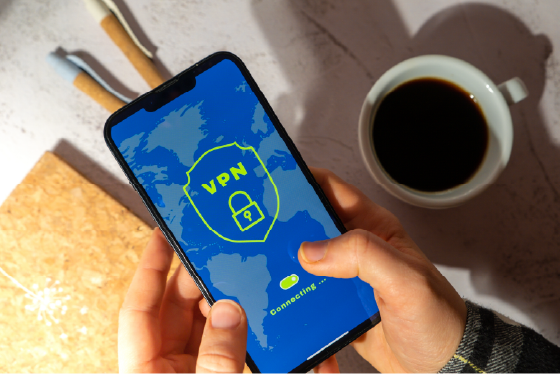How Do Mobile VPNs Work?

How Do Mobile VPNs Work?
We use our smartphones for just about everything — messaging, banking, browsing, shopping, and more. But most people don’t realize how exposed their mobile data really is when they’re not using a VPN.
Mobile VPNs are one of the simplest ways to keep your smartphone activity private and secure — especially on public Wi-Fi or mobile networks. But how exactly do they work, and how are they different from desktop VPNs?
What Is a Mobile VPN?
A mobile VPN is an app that encrypts your internet traffic and routes it through a secure server, just like a desktop VPN. The difference is that it’s designed specifically for mobile operating systems like Android and iOS.
This means mobile VPNs are optimized to work even when your connection changes between Wi-Fi and mobile data, or when your phone temporarily drops the signal. A good mobile VPN keeps your connection secure throughout those changes without interrupting your session.
How Do Mobile VPNs Work?
When you connect to a mobile VPN, it creates a secure tunnel between your phone and a remote VPN server. All of your traffic is encrypted and sent through this tunnel before it reaches the internet.
This does two important things:
- It hides your real IP address and replaces it with the IP of the VPN server.
- It encrypts your data so that your internet activity can’t be read by anyone — not your ISP, not hackers, not trackers.
Even when you’re on a public Wi-Fi network at a coffee shop or airport, your data stays protected from snooping.
Are Mobile VPNs Different from Desktop VPNs?
Functionally, mobile and desktop VPNs work the same way — both encrypt your traffic and hide your IP address. But there are some key differences:
- Mobile VPNs are built for constant switching between networks (Wi-Fi, 4G, 5G).
- They often have lighter encryption protocols to save battery life without sacrificing security.
- Some mobile VPNs offer additional features like split tunneling, kill switches, or ad blocking tailored for mobile use.
Also, mobile VPN apps usually integrate more closely with your device settings, making it easier to auto-connect or run in the background.
Why You Need a VPN on Your Smartphone
Many people think VPNs are only for laptops or work computers, but your smartphone is often more exposed. Consider these common threats:
- Unsecured public Wi-Fi hotspots that allow hackers to intercept your data.
- Apps that track your location or usage behavior.
- Mobile ISPs collecting your browsing history and selling data to advertisers.
A VPN helps protect against all of these by hiding your traffic and identity.
How to Choose the Right Mobile VPN
Not all mobile VPNs are created equal. Here’s what to look for:
- Strong encryption and a no-logs policy.
- Fast servers optimized for mobile speeds.
- Reliable connection switching between Wi-Fi and mobile data.
- Simple interface and auto-connect features.
- Compatibility with your mobile OS (Android or iOS).
Free VPN apps may be tempting, but many come with limitations or hidden risks. Choose a trusted provider that puts your privacy first.
Final Thoughts
Your smartphone is a gateway to your digital life — and it deserves just as much protection as your desktop. Mobile VPNs are a smart, easy way to encrypt your connection and keep your data private no matter where you are.
If you’re not using a mobile VPN yet, now’s the time to start. It’s one of the simplest ways to boost your security, block trackers, and stay anonymous on the go.